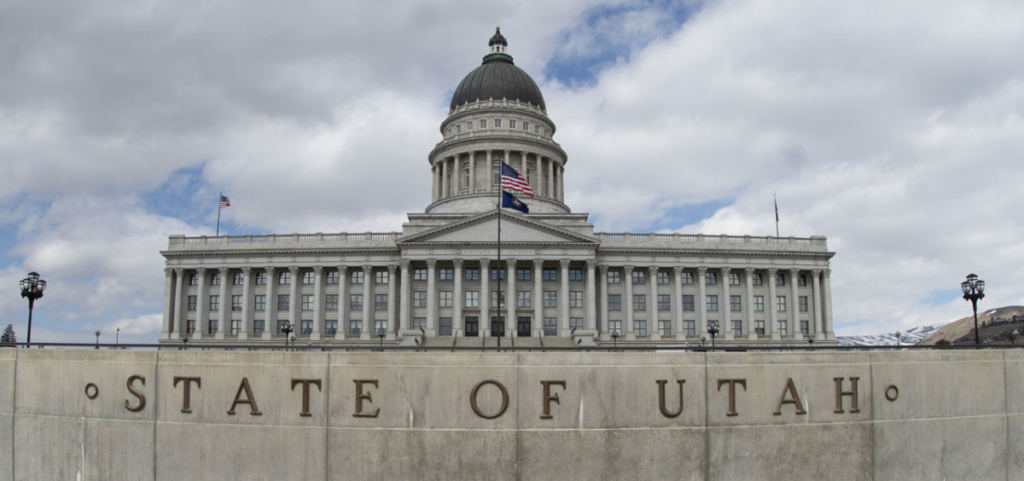February 22-25, 2022
Executive Appropriations Committee Adopts Higher Education Funding Items
The Executive Appropriations Committee adopted proposed new funding items this evening (in addition to the base budget increases adopted early in the 2022 legislative session that includes a 5.75% employee compensation market increase). The proposed items to higher education are closely aligned to the budget priorities adopted by the Utah Board of Higher Education:
Performance funding: $30,000,000
Growth & capacity (technical colleges): $ 8,700,000
Growth (degree granting institutions): $ 4,992,000
Tech. ed tuition offset: $ 1,666,800
Statewide mental health services: $ 3,000,000
Several of the capital development priorities adopted by the Board are included in the proposed funding items:
- Davis Technical College – Campus Renovations
- Dixie State University – General Classroom Building
- Mountainland Technical College – Payson Campus Building
- Southern Utah University – Music Center Renovation
- Tooele Technical College – Campus Building Expansion
- University of Utah School of Medicine
- Utah Valley University – Engineering Building
- Weber State University David O. McKay Education Building Renovation
The Executive Appropriations Committee also proposed $18m in ongoing funds towards Planning, Programming and Design of a Veterinary School at Utah State University.
The full list of proposed new funding items is available here.
Legislation of Interest
HB 226 – Higher Education and Corrections Council by Rep. Lowry Snow — establishes a council to advise the Utah Board of Higher Education regarding postsecondary education in Utah’s prisons. The council is also responsible for analyzing the outcomes of prison education. The bill passed the Senate Education with unanimous support.
HB 355 (1st Sub.) – Higher Education Financial Aid Amendments* by Rep. Val Paterson — streamlines many of the state aid programs administered by the Utah Board of Higher Education. This legislation is in accordance with the Board’s strategic priority to streamline state scholarships for reporting consistency, accountability and – most importantly – best assist students. The legislation also proposes to formalize regional educational pathway coordination made possible through the consolidation of the previously separate governing boards. The bill passed the Senate Education with unanimous support.
HB 390 – Early College and Concurrent Enrollment Program Amendments by Rep. Lowry Snow— would allow school districts to use Concurrent Enrollment funds to waive the fees associated with Concurrent Enrollment students experiencing socioeconomic disadvantage. The bill passed the House Education Committee.
HB 470 – Higher Education Residency Amendments by Rep. Jordan Teuscher – enables in-state tuition for international students who have applied for asylum or refugee status. The bill awaits a House committee hearing.
SB 172 (1st Sub.) Higher Education Student Assistance* by Sen. Evan Vickers — In fall 2021, the Utah Board of Higher Education voted to exit the loan servicing business after analyzing whether UHEAA should retain and refinance its portfolio or sell the portfolio and exit the market. This legislation creates an endowment managed by the Utah Board of Higher Education, the proceeds of which would be used for scholarships and student success initiatives. The bill passed the House Education Committee.
SB 226 (1st Sub.) Higher Education Data Privacy and Governance Revisions by Sen. Jacob Anderegg — requires the Board of Higher Education to establish a data governance plan for the Utah System of Higher Education. It also moves the Utah Data Research Center from the Utah Department of Workforce Services to the Office of the Commissioner of Higher Education. The bill also appropriates funds for additional staff and equipment to enhance data services. The Bill passed the Senate and awaits further consideration by the House.
SB 257- Divisive Concepts in Government and Education by Sen. John Johnson — prohibits public schools, institutions of higher education, and other state and local government entities from including certain divisive concepts in teaching and training materials. It also prohibits accepting funding or grants that relate to the promotion of divisive concepts. The bill includes fiscal and licensure penalties for violations of these prohibitions. The legislation is in Senate Rules awaiting a committee assignment.
* Endorsed by the Utah Board of Higher Education

